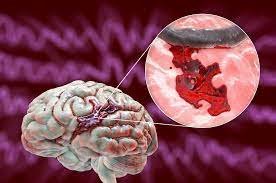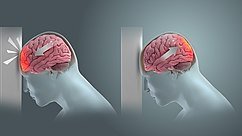Our brains are amazing organs that are capable of incredible things. They are, nevertheless, equally sensitive and vulnerable to harm from a variety of outside sources, such as our behaviors. In the fast-paced world of today, it’s simple to develop habits that could be detrimental to our mental health without even recognizing it. This thorough manual examines six typical behaviors that can have a detrimental effect on your brain and provides advice on how to stop them.

Poor Diet Brain
The way our brains work is greatly influenced by the stuff we eat. Eating a diet heavy in sugar, processed foods and unhealthy fats can cause inflammation in the brain, which can impede mental function and raise the risk of diseases like Alzheimer’s. Furthermore, a diet low in vital nutrients—like vitamins, minerals, and omega-3 fatty acids—can deprive the brain of the building blocks necessary for healthy brain function. A diet high in fruits, vegetables, whole grains, lean proteins, and healthy fats such as those in nuts, seeds, and fish is the best way to support brain function.
Lack of Exercise
Engaging in regular physical activity has advantages for both your body and mind. Exercise stimulates the production of new brain cells and connections by increasing blood flow to the brain, which supplies nutrients and oxygen. It also enhances mood and mental health in general and lowers the chance of cognitive decline. Conversely, sedentary behaviors might raise the risk of mental health issues including anxiety and depression as well as contribute to a deterioration in cognitive performance. Including mental exercises in your regimen, such as yoga, running, walking, or swimming, can assist in maintaining mental clarity and wellness.
Chronic Stress
Chronic stress can negatively impact your brain’s health, even if moderate stress is natural and even helpful in some circumstances. Long-term exposure to stress chemicals like cortisol raises the risk of mental health disorders, damages brain tissue, and impairs memory and cognitive function. By practicing stress-reduction methods like deep breathing, mindfulness, meditation, and routine relaxation, you can help shield your brain from the damaging consequences of long-term stress.
Lack of Sleep
The health and function of the brain depend on sleep. The brain refills energy stores, cleans out poisons, and consolidates memories when we sleep. On the other hand, persistent sleep deprivation can interfere with these functions, affecting memory, decision-making, and cognitive function. It may also accelerate the onset of neurodegenerative illnesses and raise the risk of mood disorders including anxiety and sadness. For optimum brain health, it is crucial to prioritize excellent sleep hygiene, which includes keeping a regular sleep schedule, establishing a calming nighttime ritual, and setting up a pleasant sleeping environment.
Excessive Screen Time
Many of us spend a lot of time in front of screens these days, whether they be on televisions, computers, smartphones, tablets, or other digital devices. While there is no denying that technology has greatly improved our lives, spending too much time in front of a screen might be harmful to the health of our brains. Long-term screen use can cause headaches, eye strain, and irregular sleep patterns, all of which can impair general well-being and cognitive function. Limiting screen usage, taking regular pauses, and participating in offline activities can all help lessen these impacts and support improved brain function.
Social Isolation
Since humans are social animals, social connection is essential to maintaining a healthy brain and mental stability. According to research, social isolation and loneliness can have a significant impact on how the brain functions, raising the possibility of anxiety, depression, and cognitive deterioration. Retaining close social links, spending time with loved ones, and taking part in group activities can all contribute to brain health and mitigate the deleterious impacts of social isolation.

Our brain health is significantly impacted by our habits. We may safeguard and enhance good brain function well into old age by being conscious of our lifestyle choices and implementing positive adjustments, such as maintaining an active lifestyle, limiting screen time, managing stress, prioritizing sleep, and forming strong social connections. Living a happy and meaningful life requires taking good care of our brains.

